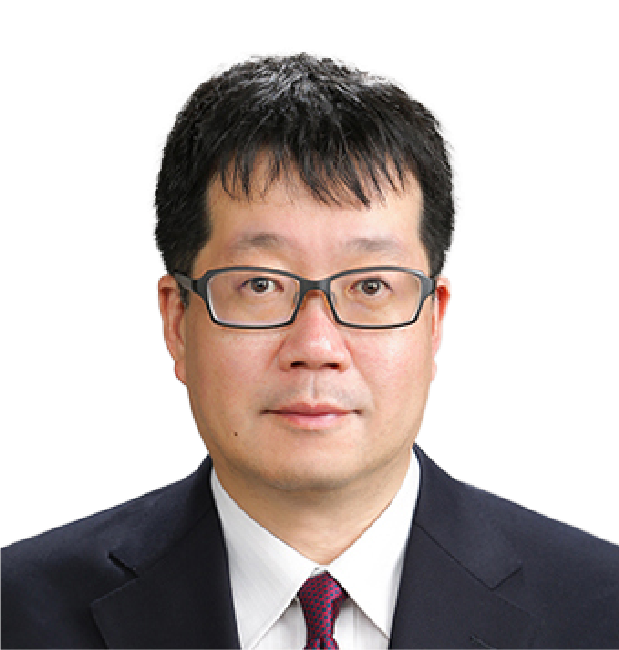
Prof. Daisuke ITO
Speaker
Appointment(s)
Specially Appointed Professor,
Department of Neurology,
Keio University School of Medicine,
Japan
Speaker Biography
Professor Daisuke ITO is a distinguished figure in the field of neurology, currently serving as a Specially Appointed Professor in the Department of Neurology at Keio University School of Medicine since 2024. He has also been the Director of the Memory Center at Keio University School of Medicine since 2022. Professor ITO's academic journey includes a significant tenure as a Research Associate at the University of Chicago from 2001 to 2005, and earlier as an Instructor in the Department of Neurology at Keio University School of Medicine from 1992 to 2001.
Professor ITO has made substantial contributions to neurological research, particularly in the areas of Alzheimer's disease and amyotrophic lateral sclerosis (ALS). His notable publications include studies on the predictive value of clinical signs and simple questions for amyloid β pathology, the performance of plasma Aβ42/40 in identifying amyloid status, and the impact of Amyloid and Tau PET on diagnosis and patient management. Additionally, his work on induced pluripotent stem cell-based drug screening for ALS and the promise of nucleic acid therapeutics for ALS has been widely recognized.
Prof. ITO's research has been published in prestigious journals such as Alzheimer's Research & Therapy, Neurology, Brain, Annals of Neurology, and Science Translational Medicine, reflecting his significant impact on the field.
Professor ITO has made substantial contributions to neurological research, particularly in the areas of Alzheimer's disease and amyotrophic lateral sclerosis (ALS). His notable publications include studies on the predictive value of clinical signs and simple questions for amyloid β pathology, the performance of plasma Aβ42/40 in identifying amyloid status, and the impact of Amyloid and Tau PET on diagnosis and patient management. Additionally, his work on induced pluripotent stem cell-based drug screening for ALS and the promise of nucleic acid therapeutics for ALS has been widely recognized.
Prof. ITO's research has been published in prestigious journals such as Alzheimer's Research & Therapy, Neurology, Brain, Annals of Neurology, and Science Translational Medicine, reflecting his significant impact on the field.
Current Status and Prospects for Dementia Treatment in the Era of Anti-Amyloid β Antibody Drugs in Japan
Abstract:
From 2023, two anti-amyloid antibodies for Alzheimer's disease (AD) have been approved in Japan, marking a major turning point in the AD therapy. These drugs have prevented decline in the quality of daily life, but their indication is currently limited to mild cognitive impairment and mild AD. In our hospital, we are actively introducing these anti-amyloid antibodies and building real-world evidence. On the other hand, anti-amyloid therapy is expected to be used in pre-clinical AD, i.e., in preemptive medicine. Indeed, many of the recent clinical trials have shifted their research focus to preclinical AD.Another major challenge in AD medicine is the establishment of a simple and accurate diagnostic method for early AD. Amyloid PET and cerebrospinal fluid testing, which are the gold standards for AD diagnosis, have limitations in terms of cost and invasiveness. We have introduced 18F-Florzolotau tau PET and applied it to cases with diagnostic difficulties. We measured several blood biomarkers using samples from our patients and found that the amyloid-β42/40 ratio had the highest diagnostic accuracy. In this talk, we will discuss our experience with anti-amyloid antibodies and our vision for future dementia therapy.
From 2023, two anti-amyloid antibodies for Alzheimer's disease (AD) have been approved in Japan, marking a major turning point in the AD therapy. These drugs have prevented decline in the quality of daily life, but their indication is currently limited to mild cognitive impairment and mild AD. In our hospital, we are actively introducing these anti-amyloid antibodies and building real-world evidence. On the other hand, anti-amyloid therapy is expected to be used in pre-clinical AD, i.e., in preemptive medicine. Indeed, many of the recent clinical trials have shifted their research focus to preclinical AD.Another major challenge in AD medicine is the establishment of a simple and accurate diagnostic method for early AD. Amyloid PET and cerebrospinal fluid testing, which are the gold standards for AD diagnosis, have limitations in terms of cost and invasiveness. We have introduced 18F-Florzolotau tau PET and applied it to cases with diagnostic difficulties. We measured several blood biomarkers using samples from our patients and found that the amyloid-β42/40 ratio had the highest diagnostic accuracy. In this talk, we will discuss our experience with anti-amyloid antibodies and our vision for future dementia therapy.
